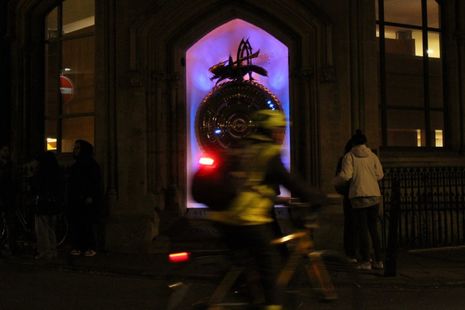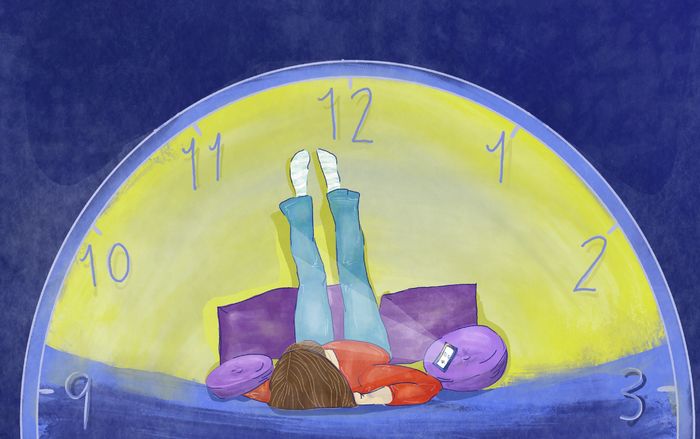How to slow down time
Anastasia Prussakova explores the factors that influence our perception of time, and explains why signing up for yet another society could actually make your days feel longer

As winter approaches and daylight begins to vanish, it may feel that the days are whizzing before our eyes. Cambridge’s short terms seem to pass in a flash: one minute it’s Freshers’ Week; the next, Michaelmas is nearing its end. Why is it that time appears to slip away so quickly? And, more importantly, is there anything we can do to fight back?
Objectively, the clock ticks at a steady pace. Our perception of the passing minutes, though, can change. Marc Wittman, a German researcher at the Institute for Frontier Areas of Psychology and Mental Health, offers two useful terms: actual, ‘clock time’ and perceived, ‘felt time’. The question of how felt time is manipulated has long interested psychologists, and several theories explore what might affect our perception of time.
"New sights and new experiences can cause time to perceptually expand"
One leading theory states that felt time is influenced by the number of novelties we encounter. New sights and new experiences can cause time to perceptually expand. Exploring this effect, one study investigated how humans experience time duration when viewing busy streets and mundane office environments. Participants felt that bustling city scenes were, on average, longer than the videos of a dull office, although video length did not differ.
This theory also partly explains why younger individuals perceive time moving slower, as compared to older individuals. I, for one, clearly remember sitting in my bedroom and pondering why my birthdays seemed so far apart. While childhood is overwhelmingly novel – brimful of new connections and learning opportunities – adulthood is relatively boring. Think about it: how many new things did you actually try this year? This reduction in new experiences, according to the novelty effect, is what causes our older years to feel as though they’re moving faster.
"Participants felt that bustling city scenes were, on average, longer than the videos of a dull office"
Another theory on the quickening pace of time is, unsurprisingly, rooted in our access to the digital world. Norwegian anthropologist Thomas Hylland Eriksen unpacks what he calls a primary scarce resource of the information age: slow time. Today, speed is at our fingertips. We are perpetually surrounded by a swarm of ever-evolving content. While the speed which new technologies grant us should theoretically supply us with more hours for our own enjoyment, we recognise – now more than ever – the loss which comes with speed. Constantly seeking digital stimulation, we rarely have uninterrupted, independent time to think and to live.
So, is it possible to slow down time?
To begin, let’s turn to physics. Although time distortion sounds like something pulled from a visionary science fiction text, physicists have observed that time can indeed pass at different rates, depending on perspective.
The key concept of time dilation refers to the discrepancies in time measured by two clocks moving at different velocities. Einstein’s Theory of Special Relativity (1905) is the seminal explanation of the nature of space and time for objects moving at constant speeds. This theory sets forth that time is impacted by one’s speed and proximity to a gravitational field. To understand the speed component, we can imagine a moving train. Time dilation tells us that an event occurring inside of this train will be observed at a different rate from inside of the train than from the platform. So, a clock that is moving in relation to another object (a viewer, for example) will lag behind a clock at rest in relation to that object. To explain the gravitational aspect of time dilation, imagine an aeroplane. Research demonstrates that, aboard the flying aircraft, a wristwatch will tick slightly faster than it would on the ground due to the impact of Earth’s gravity.
While the physics of time perception is fascinating, psychology-based solutions are, of course, more practical. So, what are some ways you can palpably elongate your days?
According to Dr. Ruth Ogden, memorialising your experiences in written form can allow you to appreciate the richness and longevity of life. Try keeping a diary and revisiting past entries when you want the year to feel longer.
Second, integrate slowness into your daily routine by unplugging. When we distance ourselves from the ever-flowing stream of digital content, we can avoid instant gratification and instead reap longer-term benefits. Rather than staying in, step outdoors: research shows that nature walks are linked with increased perceptions of time duration. And, finally, try something new and memorable! Sign up for another society, take a day trip, or pick up a new hobby. Test out the novelty effect, and see for yourself: will partaking in a new experience make time tick a little slower?
 News / Colleges charge different rents for the same Castle Street accommodation2 March 2026
News / Colleges charge different rents for the same Castle Street accommodation2 March 2026 News / News in Brief: waterworks, wine woes, and workplace wins 1 March 2026
News / News in Brief: waterworks, wine woes, and workplace wins 1 March 2026 News / Climate activists protest for ‘ethical careers policy’1 March 2026
News / Climate activists protest for ‘ethical careers policy’1 March 2026 News / Private school teacher who lied about Cambridge degree barred from teaching27 February 2026
News / Private school teacher who lied about Cambridge degree barred from teaching27 February 2026 News / Angela Merkel among Cambridge honorary degree nominees27 February 2026
News / Angela Merkel among Cambridge honorary degree nominees27 February 2026









